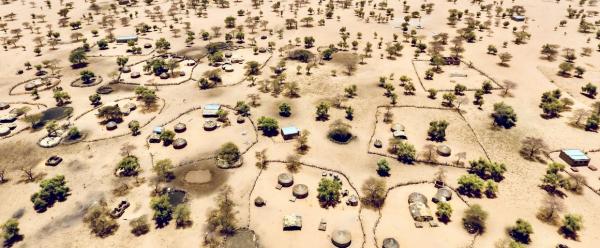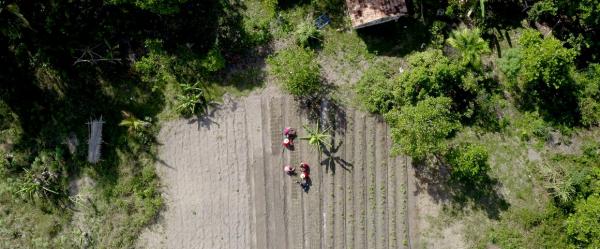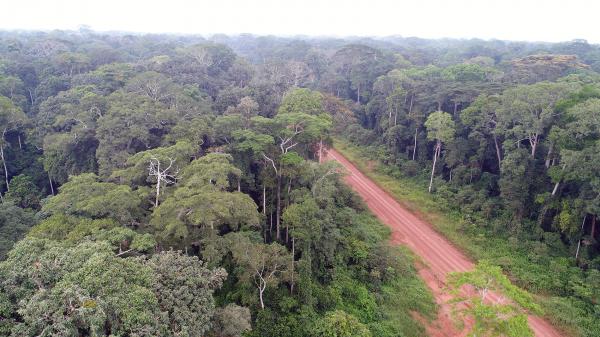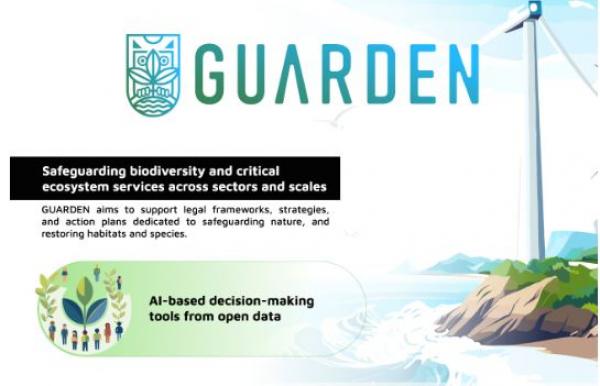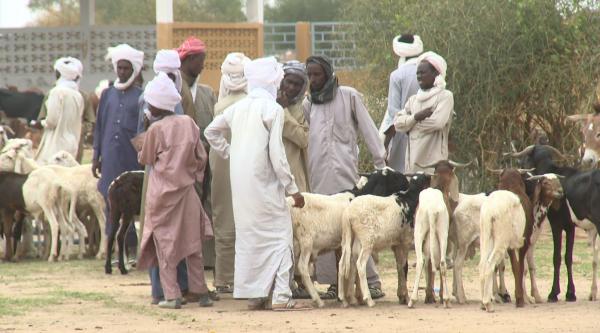Expert view 25 April 2024
- Home
- Our activities, our impact
- Priority research topics
- Territory-based approaches

Territory-based approaches
Despite the contingent nature of the approach (uncertainties, unknowns, and the specificity of each change process to be triggered and supported, which depends on the goals and perimeter set), CIRAD's operations have enabled it to build scientific expertise on a number of topics:
- analysis of the influence of production and processing systems on their environment (perimeter of the territory in question) through positive or negative externalities, their contribution to biophysical flows and the supply of ecosystem services outside their strict perimeter;
- analysis of the interactions between territorial stakeholders in different markets, supply chains, infrastructures, etc and the resource flows (capital, goods, services...) they mobilize;
- identification and analysis of situations of competition and cooperation between different economic, agricultural and non-agricultural, rural and urban players, by analysing their respective strategies and practices (production systems, supply chains, markets, public authorities, private players, etc);
- identification of requirements in terms of new regulations, instruments and standards, with regard to current regulatory frameworks and public policies, with a view to proposing adaptations (territorialization of public action).
The objects and processes CIRAD intends to address include technical change and innovation in food systems, urbanization and sustainable urban food supplies, public action and policy, common and public goods production (both tangible and intangible), renewable resources and their management, governance, etc. The issues at stake are food security, jobs, the future of family farming, migrations, the circular economy, adaptation to global change, the agro-ecological and energy transitions, integrated management of water resources, health, and achieving the SDGs, among others. Territorial approaches may also concern the other five key thematic fields.
CIRAD can rely on the experiments conducted on these levels, sound conceptual and methodological bases (observatories, innovation platforms, territorial structures, innovative product certification systems, etc), and on a dense, varied network of partners in the global South keen to commit to territorial development. However, these approaches still require major methodological development work (modelling, data cross-referencing, metrics and assessment, foresight approaches, supply chain-territory relations, analyses of current policy, adaptation the living-lab concept to the South, etc) and integrated, interdisciplinary approaches. Such development will serve to generate the knowledge required to support stakeholders via participatory operational structures.
There are also still scientific and societal issues surrounding the adoption of concepts, genericity, participation and concertation, up- and downscaling, and comparison of the territories studied. Those issues may require a renewal of certain disciplines at the heart of territorial sciences (multi-criteria assessment, ergonomics, logistics, etc).
























